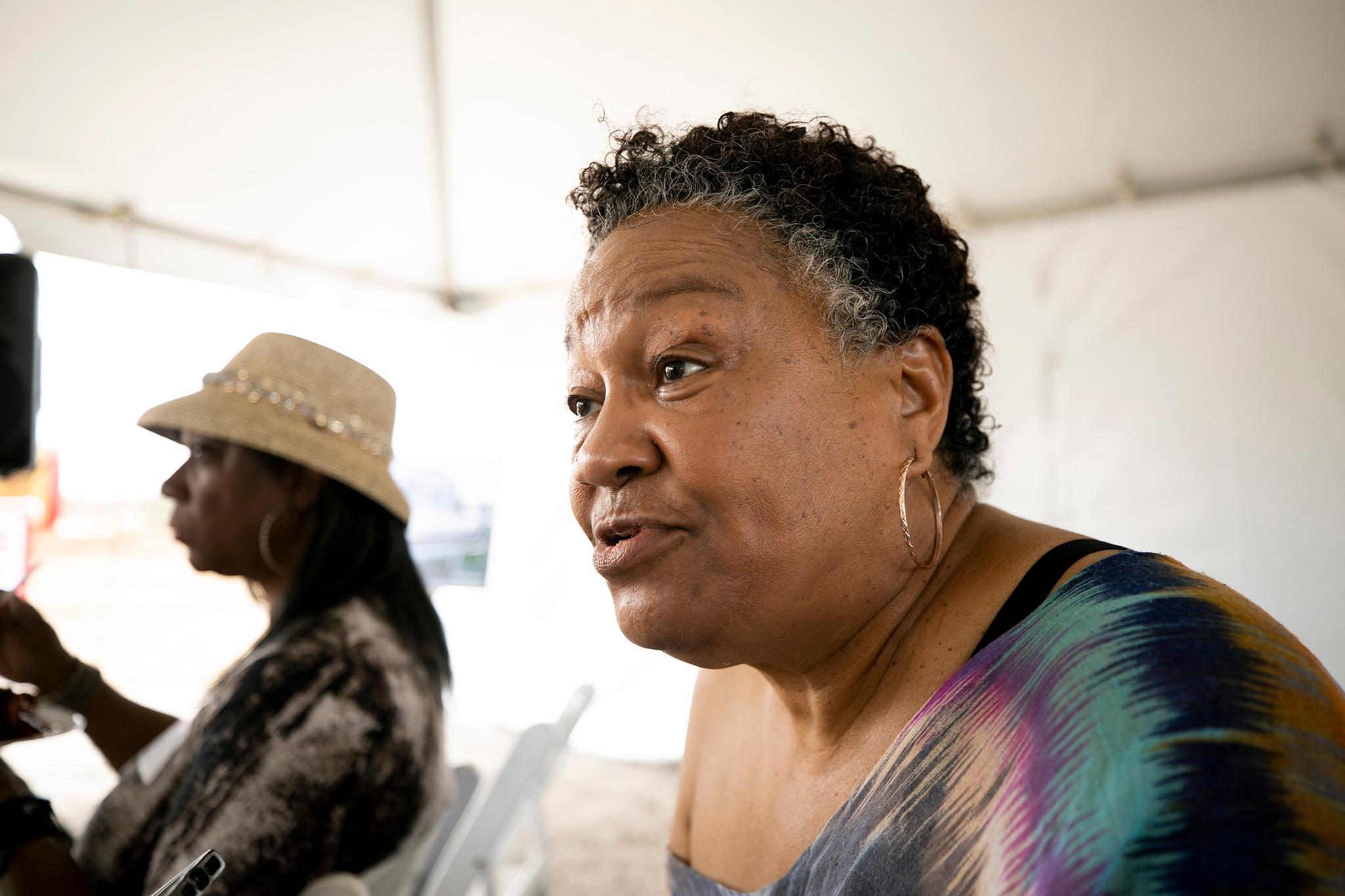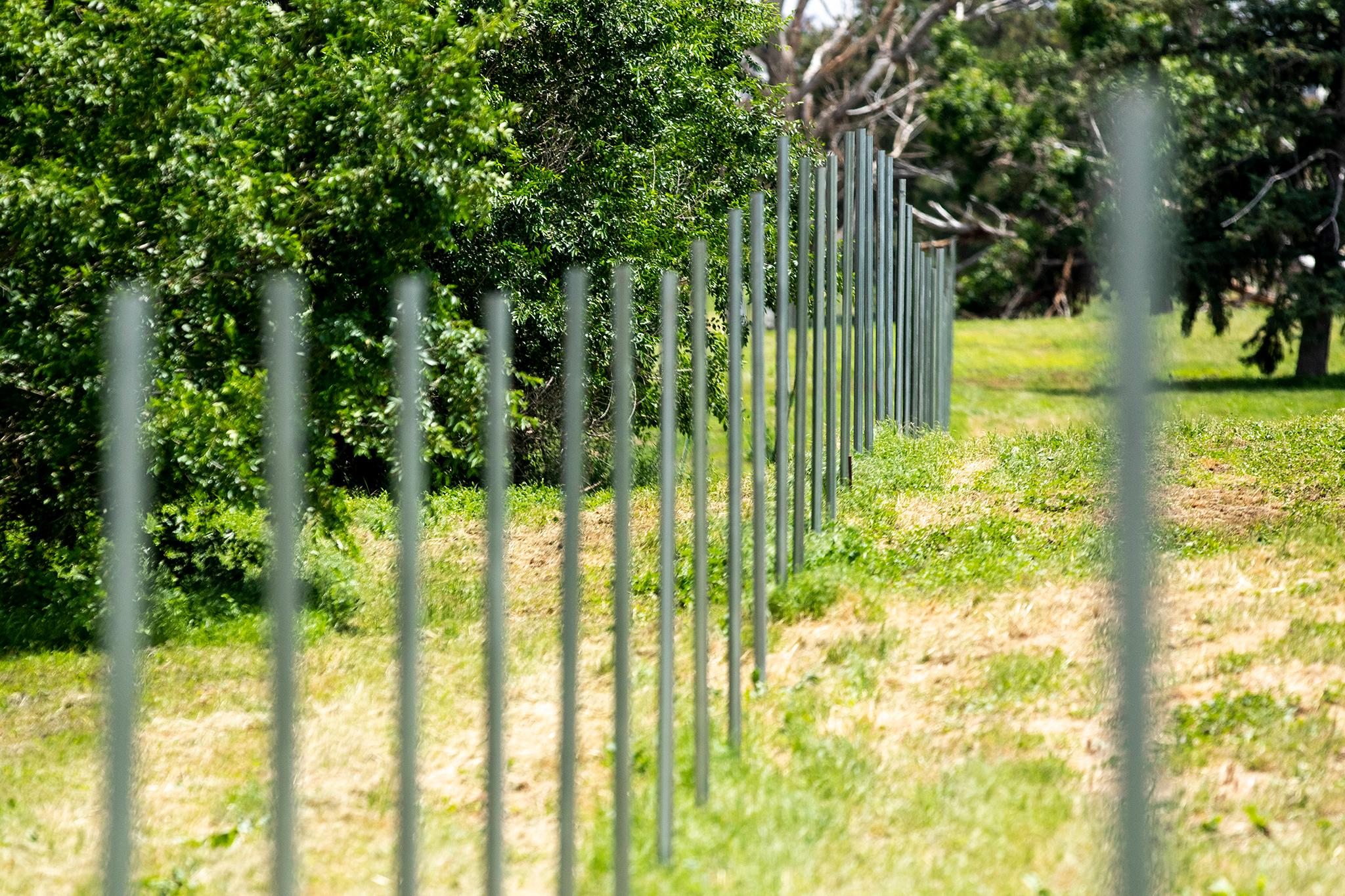Neighbors near the Park Hill Golf Course have been rattled as workers have pounded fencing posts into the ground over the past couple of weeks. Westside Investment Partners is fulfilling its promise: blocking off 155 acres of Northeast Park Hill from the public -- exactly what the company said it would do if voters didn't approve a massive development on the site.
Some thought Westside was bluffing and would keep the land open, as it had during the pandemic, to locals going for a stroll. That was wrong. Westside says it won't let the public on the company's private land anymore.
Here's how Westside explained the decision in a flyer titled "Thank you for visiting the once and future home of the Park Hill Golf Course" and handed out to trespassers by security:
In a Westword editorial, University of Colorado Boulder political science professor Scott Ritner, a Park Hill resident, wrote, "Retaliation like this is a cynical political and economic move. It is undemocratic."
Here's what led up to the fencing.
The developer paid $24 million to the Clayton Trust for the site in 2019, hoping to develop the land. That was a gamble. A conservation easement from the '90s protected the Park Hill Golf Course from development and limited how the land could be used: basically, as an 18-hole, fee-based, privately owned, publicly accessible golf course with other recreational amenities, as long as they didn't interfere with golf. If golf proved impossible to run, there were ways out of the contract, but golf can happen there, just like it's happening at the City Park Golf Course a stone's throw away.
One thing was clear in the easement: Commercial and residential development, by law, wasn't supposed to happen.
But Westside bet it could pull off a big project despite the easement. With help from Community Planning and Development and Mayor Michael Hancock's administration, the developer attempted to bring a massive mixed-use project to the land.
Under the banner Save Open Space, advocates argued that the developer was attempting to pave over green space and undermining the conservation easement and the will of the voters. They claimed the conservation easement did not require golf -- though it stated that multiple times -- and that instead a massive park would be possible.
During the pandemic, the company opened the land to the public for limited use: walks, runs and more, unevenly enforcing what sorts of activities were not permitted. It wasn't a public park. But it kind of functioned that way, and people became enthralled with access to green space in the city. While neighbors around before 2018 remembered when the land was sealed off from all but those who could afford and enjoyed golf, newcomers knew the site as a place for recreation.
Meanwhile, compelled to engage in a lengthy community process, Westside resolved to bring income-restricted housing, guaranteed space for a grocery store, retail and Denver's fourth-largest park to the site. Opponents said the promises were too good to be true, though they were legally binding commitments.
Mired by lawsuits and a massive opposition campaign, the developer failed to win voters over on the project in three separate ballot measures -- only one of which named the site.
The last defeat, which followed multiple City Council votes and an expensive and extensive public-input process, left the company with no obvious path toward developing the land.
"Because the Park Hill easement is unambiguous, the land will return to a privately-owned, regulation-length 18-hole golf course," said Bill Rigler, a former spokesperson for the developers and Westside's Yes on 2O campaign. "The site will immediately be closed to public use or access, with no housing, community grocery store, or public parks allowed on this site, in accordance with the will of the voters."
Though security guards handed out the leaflets that made Westside's point clear, people kept using the space.
So here we are, and the fencing is going up.
Save Open Space Denver had no official comment on the fencing. That group hopes the city pays for an assessment of the land's value with the conservation easement on it. Then they want Mayor-elect Mike Johnston to find a way to purchase the property for that price -- what some in the group have guessed is somewhere between $4 and $6 million. If that happens, it will be an $18 to $20 million loss for Westside.
Others who want to see the land become a park have said the city should take it through eminent domain. Johnston, who supported the development, has suggested he'd try to have the city buy the land and turn it into a park or another public amenity, but eminent domain is not in the cards.
Harry Doby, who has opposed the development, said of the fencing: "I personally don't think this will have any impact on the negotiations between the city and Westside regarding any potential purchase -- hopefully the city will get a good price from a scrap metal recycler!"
He continued by saying that "They are taking their third defeat pretty hard, it seems."
Alex Walsh, who lives near the golf course, likens Westside's decision to put up fencing as something akin to a kid who loses a game and decides to pout and take the ball home.
Walsh, a former youth baseball umpire, took note of the fencing and said he filed a complaint with the city.
"If you're gonna take the ball and run away, you've at least got to do it right," he said.
Community Planning and Development spokesperson Amanda Weston said her agency had not received a complaint about the fencing and that it is permitted. Westside did not respond to multiple requests for comment on this story.
"The only complaint we have received is for weeds and trash," she wrote in an email to Denverite.

Some neighbors say that it's ridiculous to complain about the fence.
Longtime Northeast Park Hill community leader Helen Bradshaw said that people who are surprised the fencing is going up are "like ostriches putting their heads down in the sand."
They are under the misconception that the city once owned the land.
She was a proponent of the development -- partly, so she could have accessible retail near her home and a place her grandchildren could afford to live. She said that opponents she talks to are now in "regret mode" for voting against Westside's project.
Nothing's changed with the land, as she sees it. It was never really free to the public.
"If you did your homework, you knew it didn't belong to the city in the first place. Hello?" she said. "Realize that it is private. Get a crayon. Write it down: Private property!"
This story has been updated to include comments from Community Planning and Development about complaints received about the Park Hill Golf Course.











